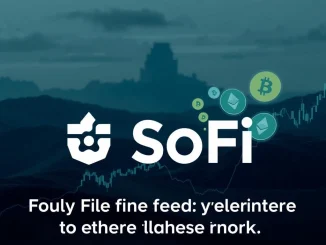
Major discussions are underway in South Korea that could significantly impact the future of digital assets in the nation. The focus? Stablecoins. Specifically, the dominant role of U.S. dollar-based stablecoins and the potential emergence of a Korean won-pegged alternative. This development signals a growing intent from policymakers to assert more control and influence over the digital currency landscape within the country.
South Korea’s Democratic Party Takes on Stablecoin Policy
On May 21, South Korea’s Democratic Party of Korea (DPK) is set to host a pivotal policy discussion centered on stablecoins. This meeting, organized by the party’s digital asset committee, aims to tackle strategic responses to the widespread use of stablecoins primarily denominated in U.S. dollars, according to a report by Yonhap News.
A key agenda point is the exploration of potentially introducing stablecoins pegged to the Korean won. This isn’t just a technical consideration; it’s a strategic move with broader economic implications.
Why the Focus on Won Stablecoins?
Min Byoung-dug, who chairs the digital asset committee, has been vocal about the motivations behind this push. He highlights a critical need to support the introduction of won-pegged stablecoins. The primary goal? To limit the influence exerted by dollar-denominated digital assets within South Korea’s financial ecosystem. Safeguarding the local currency ecosystem is a stated priority.
Min suggests that with a robust platform and a well-developed ecosystem, Korean stablecoins could effectively compete with their dollar-based counterparts. This competition is seen as vital for maintaining economic sovereignty in the digital age.
Here are some potential reasons policymakers are considering a won stablecoin:
- Countering Dollar Dominance: Reduce reliance on foreign currency-pegged assets for domestic transactions and investment in the crypto space.
- Protecting the Won: Mitigate potential risks to the stability and control of the national currency posed by widespread adoption of foreign stablecoins.
- Fostering Local Innovation: Encourage the development of blockchain platforms and services built around a domestic digital asset.
- Regulatory Oversight: Easier to regulate and monitor a stablecoin issued and operating under Korean jurisdiction compared to offshore alternatives.
- Supporting Local Businesses: Provide a stable digital medium for transactions and smart contracts within the Korean economy.
What Challenges Lie Ahead for a Korean Won Stablecoin?
While the concept of a won stablecoin presents clear benefits, its successful implementation faces hurdles:
- Adoption: Convincing users and businesses to switch from established dollar stablecoins like USDT or USDC.
- Regulation: Developing a clear, comprehensive regulatory framework that fosters trust without stifling innovation.
- Infrastructure: Building the necessary technical infrastructure and platforms to support a widely used won stablecoin.
- Competition: Directly competing with globally recognized and highly liquid dollar stablecoins.
- Public Trust: Building confidence among the general public in a government or privately-backed digital won.
How Does This Fit into South Korea’s Broader Crypto Regulation Picture?
This discussion is part of a larger trend of South Korea actively engaging with crypto regulation. The country has been working on frameworks for virtual asset service providers (VASPs) and investor protection. Focusing on stablecoins, particularly the desire for a domestic option, shows a move towards managing the integration of digital assets into the traditional financial system while attempting to maintain national economic interests.
What Could This Mean for the Future?
The outcome of the May 21 discussion could set the stage for concrete policy proposals. If the Democratic Party pushes forward with supporting a won stablecoin, it could lead to government incentives, regulatory clarity, or even public-private partnerships to develop the necessary infrastructure. This could create a new dynamic in the Korean crypto market, potentially boosting local platforms and reducing reliance on foreign stablecoin providers for won-denominated trading pairs and services.
For global stablecoin issuers, increased regulatory focus and potential competition from a domestic alternative in a significant market like South Korea could require strategic adjustments.
The push for a won stablecoin is a clear indicator that major economies are thinking seriously about the implications of stablecoins for their monetary sovereignty and financial stability. It’s a space to watch closely.
Summary: A Pivotal Moment for South Korean Stablecoins
South Korea’s Democratic Party is poised to hold a crucial discussion on stablecoin policy on May 21. The central theme is addressing the prevalence of U.S. dollar stablecoins and exploring the viability and benefits of introducing won-pegged stablecoins. This initiative, championed by figures like Min Byoung-dug, aims to protect the local currency ecosystem and limit foreign influence in the digital asset space. While challenges related to adoption, regulation, and infrastructure exist, the potential introduction of a Korean won stablecoin represents a significant step in South Korea’s approach to crypto regulation and could reshape the country’s digital asset market dynamics.



